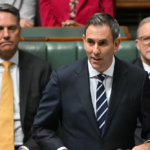Developing data rights for all Australians

Australians are heavy users of social media platforms. However, they are also increasingly concerned about the use of their digital data. Recent research shows that Australians care about their privacy online and often take steps to limit the amount of data they share with companies.
The recent Facebook-Cambridge Analytica scandal has shown that people have little control over how social media platforms handle their data, raising an important question: how do we protect Australian consumers in a data-driven economy?
This question becomes particularly pressing once we consider the growing presence of household devices with Internet connectivity and the way our lives are confronted with ubiquitous computing (also known as the Internet of Things). The amount of data collected from people’s everyday interactions our private sphere is almost impossible to imagine and growing everyday.
One response to this data privacy challenge is to try and intervene in the current model of data collection and targeting that operates on commercial social platforms and across the Internet. This is what the European Union (EU) has attempted with the General Data Protection Regulation (GDPR), which is applicable from the end of May 2018.
The GDPR gives every EU citizen a suite of new rights associated with their data and also requires companies to adhere to a series of new regulations focused on data privacy.
In contrast, data access and availability has captured the policy conversation in Australia. However, it is still unclear what standard of access is suitable for consumers, exactly what benefits access will bring and just how important access is in reshaping the power imbalance between consumers and companies.
These challenges are at the core of a new project being undertaken by the authors (and funded by the Australian Communications Consumer Action Network). Our aim is to explore how a range of social media, telecommunications and personal device companies (such as fitness devices) are managing the privacy and data of Australian consumers, and assesses the broader costs and benefits associated with these policies.
The first phase of the project is to conduct an audit of data access policies and processes across these sectors to see what sort of data Australian consumers can access. Initial findings show that companies across these sectors present a wide variety of access options and provide consumers with varying levels of access to their own data.
Even though we are only in the early of part of Phase 1, important insights are already emerging. We have found that some companies do not always volunteer information about data access, the ability to transfer data to other services is often limited and other companies are unclear about exactly what data can be provided to consumers. On the whole, it appears to be a confusing area for consumers to navigate.
This also means that unless organisations take a more user-centric and ethical perspective, there is always the risk that some legislative changes will be introduced that serve only to make it appear the government is acting. Such knee jerk reactions are likely to serve no-one: that is, failing to protect the consumer while adding bureaucratic burdens on organisations.
In the second phase we will undertake a public campaign to raise awareness of these avenues. The popularity of a recent Guardian column on how to access data collected by Facebook and Google suggests that many consumers are not aware of how to access their data, or exactly what sort of data such companies and their third party suppliers collect.
Finally, the project will assess the claim that data access is an inherent positive for the Australian economy and users. This claim was advanced by the Productivity Commission in their March 2017 report on Data Availability and Use.
It highlighted a range of social and economic opportunities associated with data. The Commission argued that “data access and use can enable new products and services that transform everyday life, drive efficiency and safety, create productivity gains and allow better decision making”.
One key recommendation to come out of the report was to introduce a Comprehensive Right for Consumers allowing them to get a copy of their data, make edits or corrections to their data and most importantly get data holders to give them access to their data or transfer it to another third party on the consumers’ behalf.
The Australian Government has supported this recommendation and will introduce a Consumer Data Right. This right will first roll out across the financial sector under the name Open Banking before being introduced to the energy and telecommunications sectors.
There are benefits and risks associated with this approach. Open Banking may lead to cheaper home loans and support better budgeting but will also increase the “degree of risk associated with customer banking data”.
Considering the different strategies adopted by the European Union and Australia, it is an apt time to examine the strengths and limitations of the Australian approach and what other structures might need to be in place to support ongoing consumer protection in a data-centric economy.
This project is funded by the Australian Communications Consumer Action Network. This article was written by James Arvanitakis, James Meese and Punit Jagasia.
Dr James Meese conducts research on media and communications law and policy. His research has been published in Television and New Media, Mobile Media and Communication and various edited collections. His two books are Authors, Users, Pirates: Subjectivity and Copyright Law (MIT Press) and Death and Digital Media (Routledge, co-authored).
Dr Punit Jagasia is a fresh doctoral graduate from the Media and Communication department at the University of Sydney. His research examined the user regulation of Facebook, using diverse themes. Punit has also worked in the marketing communications industry, for over twelve years.
Professor James Arvanitakis is the Executive Director of the Australian American Fulbright Commission – one of the world’s most prestigious international education and cultural exchange programs.














